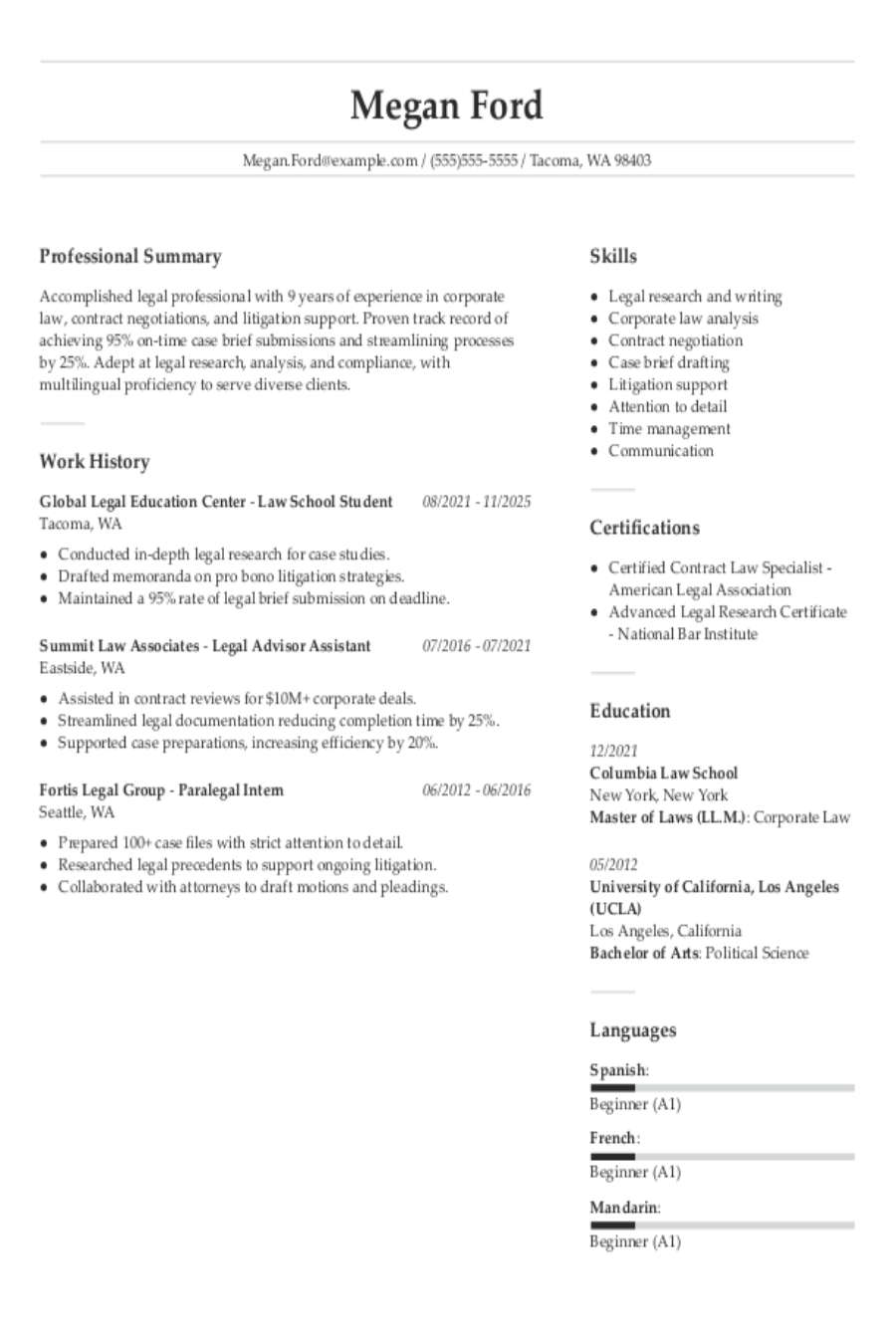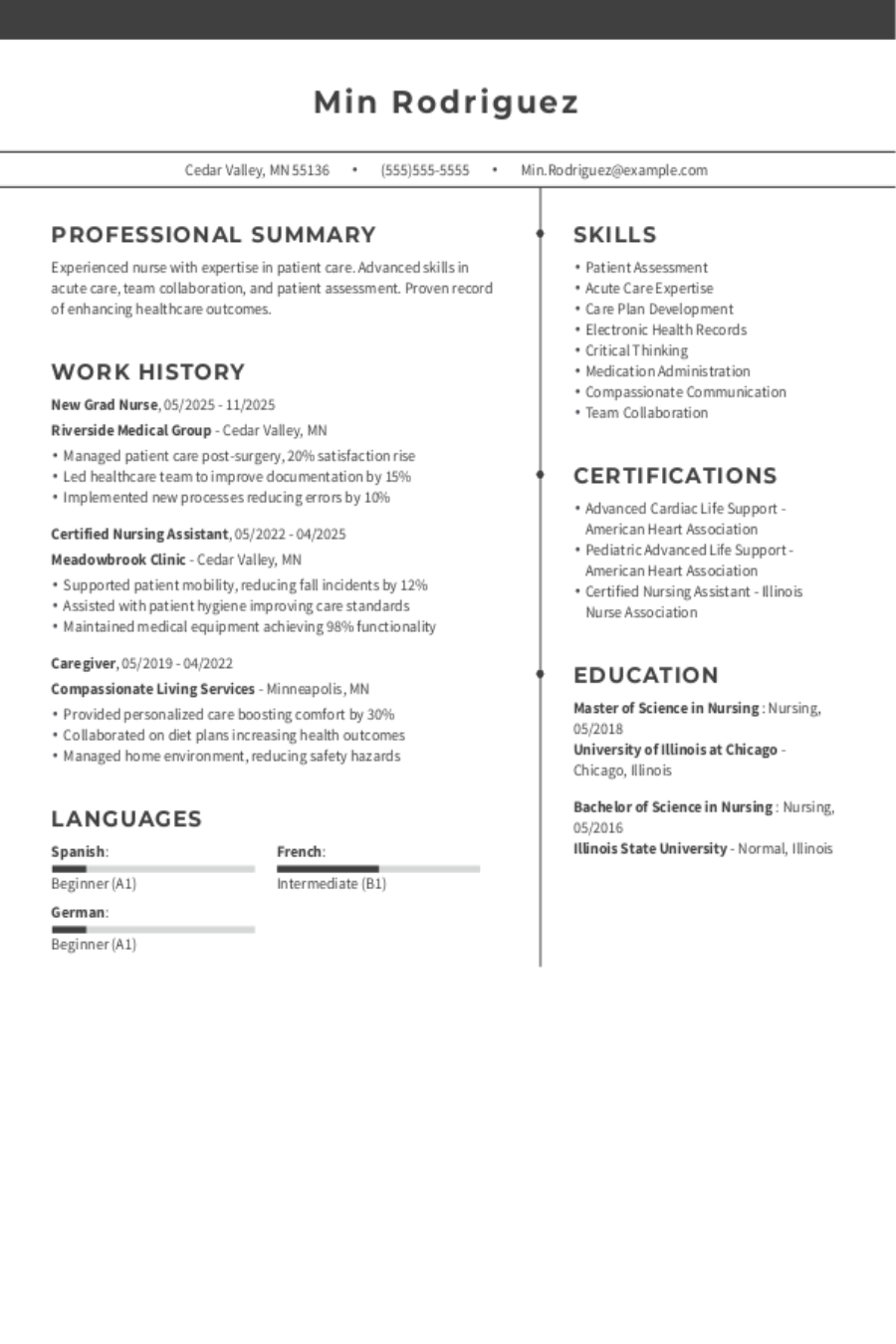Table of contents
Taking a seat in the hot spot for a job interview is never easy, but it’s a crucial step toward landing the position.
First off, congrats on landing the interview! This could be a big step forward in your career and a sign that your hard work is paying off.
While preparing strong answers for common job interview questions is important, there’s another aspect that can make you shine even brighter — asking thoughtful questions of your own.
Employers genuinely appreciate candidates who show engagement and have taken the time to research both the company and the position thoroughly. Asking the right questions shows that you care.
Our guide will help you cover your bases.
Related Guides & Tips
40 great questions to ask the interviewer
As you’re preparing for a job interview, remember that the questions you ask are just as important as the answers you provide.
Here are 40 questions career coaches and job seekers report finding most useful in impressing employers and learning more about the organization you’d like to work for:
- What are the anticipated challenges in this role?
- Which specific area should the new hire focus on to excel?
- Can you give an example of when the company adopted an employee’s suggested process or procedure?
- How does a typical week unfold in this role, and what are the peak periods of activity?
- How would you define success for this position after one year?
- How will my performance be evaluated in this role?
- What current issues or challenges is the department facing?
- Is this a new position or a replacement? If it’s a replacement, what were the reasons for the previous employee’s departure?
- What training and development opportunities does this role offer?
- Could you describe a typical day in this position?
- What key challenges is the organization currently facing, and what are the plans to address them?
- Why did you choose this company, and what motivates you to continue working here?
- What do you personally find most rewarding and challenging about working here?
- Could you share a story of a significant team achievement and why it was impactful?
- What technology and tools does the company use?
- What are the current goals and priorities of the department?
- Can you tell me about the team I’ll be working with?
- What’s the company’s approach to diversity and inclusion?
- What are the key milestones and objectives I should aim to achieve in the first six months?
- Can you describe the company’s culture?
- How does this role contribute to the organization’s goals?
- What does the career path for someone in this role typically look like?
- How does the company support professional development and training?
- What are the company’s values and how are they reflected in the workplace?
- How has the company changed over the last few years?
- How does the company handle feedback and open communication?
- Can you tell me about any upcoming projects or initiatives?
- What skills or qualities do you believe are essential to overcome the challenges in this role?
- How does the company encourage work-life balance?
- What do you enjoy most about working here?
- What’s the company’s policy on remote work and flexible hours?
- How will my performance be evaluated?
- What opportunities for personal growth will this role offer?
- Can you describe the learning and development resources available?
- What mentorship or coaching does the company provide?
- How does the company recognize and reward success?
- What is the typical career trajectory for someone in this role?
- How does the company support employee health and well-being?
- Can you give examples of team-building activities or company events?
- How does the company encourage innovation and creativity?
Alright, let’s take a deeper dive into specific categories of questions.
Questions to ask about the company
The following questions to ask in an interview focus on the company’s ethos, strategic direction and workplace environment.
Core values and culture
- Can you give examples of team-building activities or company events?
- How does the company encourage innovation and creativity?
Long-term goals and vision
- How do [the department’s goals] align with current industry trends and changes?
- What strategic moves is the company making to adapt to future challenges?
Professional growth
- How does the company measure the impact of professional development programs?
- What is the balance between self-directed learning and structured training?
Corporate social responsibility (CSR)
- How do employees get involved in CSR activities?
- What impact have these initiatives had both internally and externally?
Pro Tip:
Ask between three to five thoughtful questions during your interview. This number strikes a balance between showing genuine interest and understanding of the role while respecting the interviewer’s time.
Questions to ask about the job
The questions below will help you understand the role, its impact and the expectations.
Responsibilities
- How has this role evolved in response to industry changes?
- What are some unexpected aspects of this role?
Collaboration
- How is creativity fostered within the team?
- What are some examples of successful cross-functional projects?
Goals and measurement
- How do the key performance indicators (KPIs) support the company’s broader objectives?
- What are the common obstacles in achieving these goals?
Technologies and tools
- How does the company stay updated with emerging technologies relevant to this role?
- What is the process for suggesting and adopting new tools?
Questions to ask about the team
Here are a few questions to ask an interviewer focused on team dynamics, communication and approaches to collaboration.
Team composition and roles
- Who would I be working with closely in this role?
- What is the team’s strategy for adapting to new challenges?
Handling challenges and conflicts
- Can you provide an example of a significant challenge the team recently overcame?
- What are the conflict resolution mechanisms in place?
Cross-training and learning
- How is individual expertise leveraged for team-wide learning?
- What are some of the most effective cross-training sessions the team has had?
Communication style and channels
- How does the team maintain communication effectiveness in a remote/hybrid model?
- What are the unique communication challenges the team faces?
Pro Tip:
Use a small notebook and jot down key points and specific details that stand out during the interview. This will help you form thoughtful follow-up questions and recall important parts of the conversation later.
Questions to ask about professional development
Here are a handful of questions about personal growth and how the company nurtures talent.
Growth and advancement
- What are the challenges typically faced by employees in their career progression here?
- How does the company support transitions to different roles or departments?
Mentorship and coaching
- What is the success rate of the mentorship program in terms of career advancement?
- How is mentor-mentee compatibility ensured?
Training programs and certifications
- What is the feedback process for these programs?
- How are training needs identified and addressed?
Performance feedback and goal-setting
- What are the KPIs for this role?
- What role do employees play in shaping their performance evaluation criteria?
25 questions to NOT ask in an interview
Asking the right questions in an interview is key, but it’s equally important to know what not to ask.
Here are 25 questions that should generally be avoided during a job interview:
- Salary and benefits too early: “How much does this job pay?” (Ask only after the employer brings it up or in a follow-up interview.)
- Too personal: “Are you married? Do you have kids?”
- Negativity about past employers: “Can I tell you about the terrible company I worked for previously?”
- Lack of research: “What does your company do?”
- Overconfidence: “When can I start expecting promotions?”
- Showing disinterest: “Will I have to work long hours?”
- Lack of commitment: “How soon can I take a vacation?” (But you should tell them about any upcoming trips you already have scheduled when the time is right.)
- Legal issues: “Have you ever been sued by an employee?”
- Controversial topics: “What is your stance on [political/religious issue]?”
- Gossip seeking: “I heard a rumor about the company. Is it true?”
- Too casual: “What’s the dating scene like here?”
- Self-serving: “Do you tolerate lateness?”
- Unprofessional curiosity: “How much do you make?”
- Jumping ahead: “Will I get my own parking spot?”
- Lack of tact: “Do people usually get fired from this position?”
- Non-work related: “Can I bring my dog to work?”
- Assuming success: “So, when do I get my office?”
- Off-topic: “Are the office parties fun?”
- Undermining the interviewer: “Do you actually like working here?”
- Lack of focus: “How many breaks do I get?”
- Impatient: “How soon will I oversee a big project?”
- Personal financial gains: “What are the stock options like?”
- Inappropriate: “Do you check social media accounts?”
- Unprofessional comparison: “How does this job compare to [another company]?”
- Overly ambitious: “When can I expect to take over your job?”
Next, we’ll share a few tips to help you create good questions yourself.
6 tips for asking good questions in an interview
Before we wrap up, here are some key strategies to help you formulate those high-impact questions:
- Do your research: Treat the interview as your first opportunity to showcase your skills. Demonstrating that you’ve prepared thoroughly by asking well-informed questions will highlight your research abilities.
- Seek insights, not just information: Aim to frame your questions in a way that uncovers insights you couldn’t just find by glancing over the company’s website. This approach shows you’re looking to understand the deeper aspects of the role.
- Show your enthusiasm: Employers want to hire candidates who are genuinely excited about the role. Express your enthusiasm, interest and positivity through the questions you ask. This shows an eagerness to be part of the team.
- Avoid yes or no questions: Opt for open-ended questions. These questions create room for detailed responses and can reveal much more than simple ‘yes’ or ‘no’ answers.
- Prepare a list but be flexible: Preparation is important — that’s the whole purpose of this guide! However, be ready to change course as the interview progresses. Allow your natural curiosity to guide the conversation to new areas rather than strictly adhering to your prepared list.
- Listen actively and ask follow-ups: The ability to listen attentively and formulate strong follow-up questions during the interview is as valuable as any question you could prepare in advance. This shows you’re fully engaged in the conversation and capable of thinking on your feet.
We hope these tips have equipped you with the knowledge to ask insightful questions in your next interview. Your preparedness will make a strong impression.
If you’d like to see more, check out our other interview guides:
Was this information about 70+ Smart Questions To Ask In A Job Interview helpful? Let us know!
Don is a Certified Professional Resume Writer (CPRW) with more than 10 years’ experience creating digital content, including four years helping job seekers develop their careers. He holds an M.S. in Journalism from Northwestern University.
More resources

How to Write a CV: The Ultimate Guide
Here is a complete and comprehensive guide to writing a CV ev...

15 Latest Resume Trends for 2026 + Examples
Learn how these 15 current resume trends for 2026 can help you...

Law School Resume: Examples & Templates
Creating a standout law school resume means highlighting criti...

New Grad Nurse Resume: Examples & Templates
As a new grad nurse you need a resume that highlights your cl...

Military Resume: Examples & Templates
As a military professional you need a resume that highlights ...

